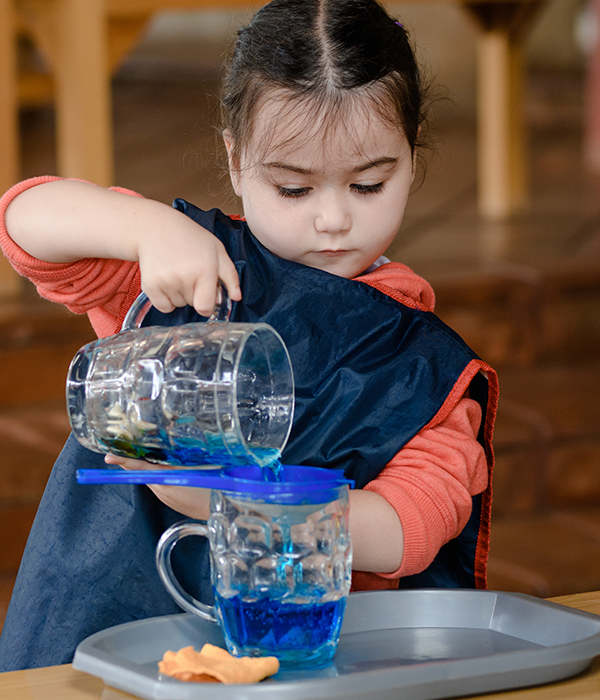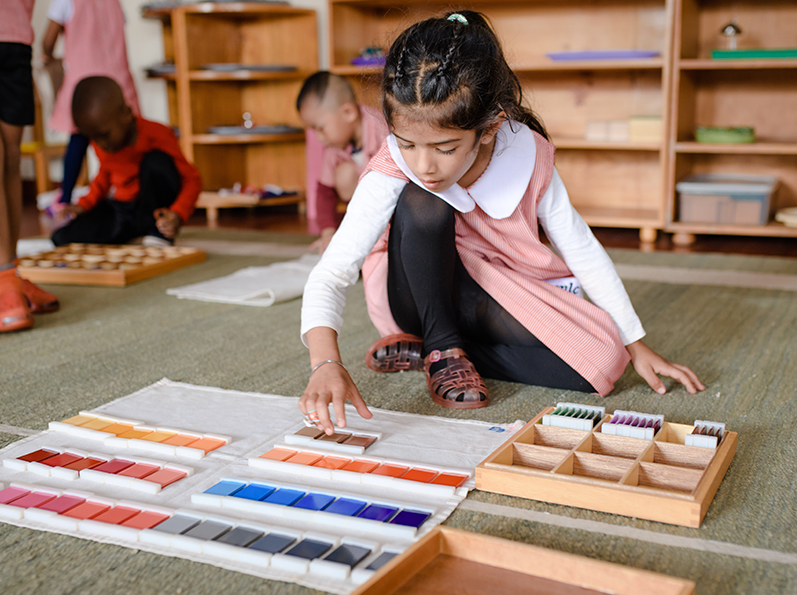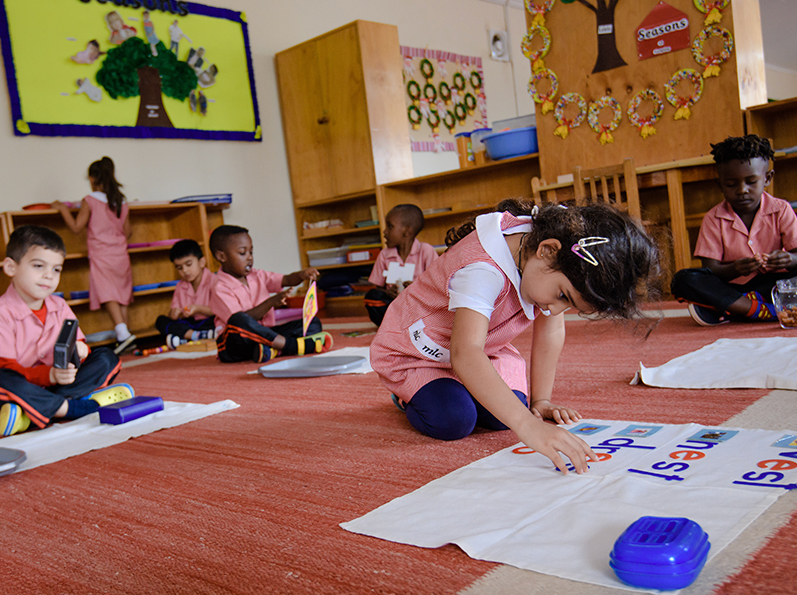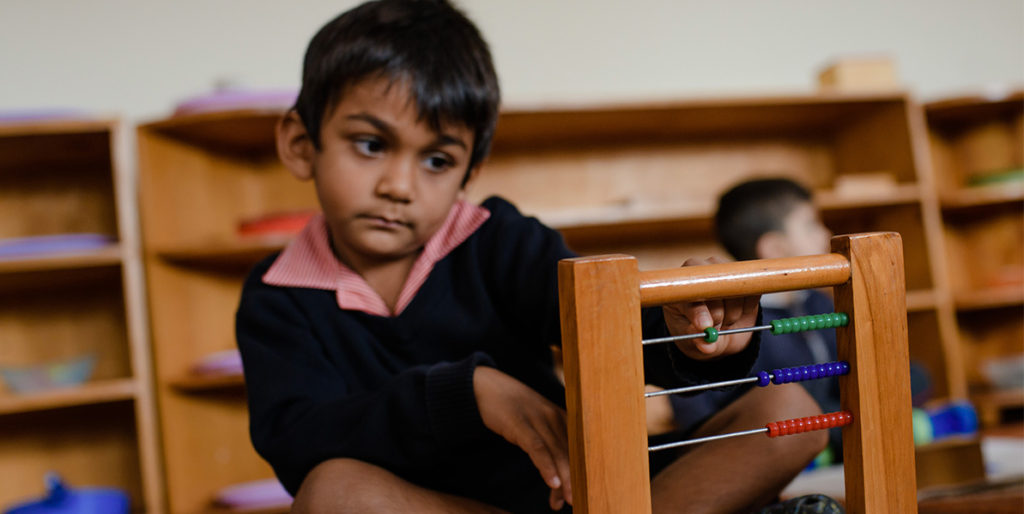About the Curriculum
The Montessori curriculum was passionately created by Dr Maria Montessori with each child’s best interest at heart. She observed that no two children are the same, and might require different exposure to learn similar concepts. The Montessori curriculum is therefore tailor-used for every individual child to be able to learn in their own unique style at their own developmental pace.
She divided the curriculum into key areas, using beautiful and meaningful materials that would allow children to learn and internalise lessons without much interference from an adult.
Practical Life
The Montessori practical life exercises are seen as the cornerstone of the Montessori Method. The exercises provide the opportunity for purposeful work and they assist children in their development: physically, cognitively, socially and emotionally. There are 4 areas categories of practical life activities;
- Care of Self
- Care of environment
- Development of fine & gross motor skills
- Social grace & courtesy
Children benefit from Practical Life activities in the following ways (not limited to these)
- To grow in self-knowledge
- Develop concentration
- Develop fine and gross motor skills
- gain independence
- Establish order
- Develop a good self-image
- Appreciate and understand the environment
- Develop a sense of responsibility
- Aid the child in his self-construction


Sensorial
Have you ever felt like one of your senses is stronger than the others? Montessori understands that this is the case for everyone and therefore allows for learning through each of the senses, enabling optimum learning. Specific materials have been designed to aid in the development and refinement of each sense in isolation and collectively, making learning an enjoyable experience regardless of one’s strengths. The sensorial exercises also help indicate any limitations that children face, in order to investigate and address them early enough.
The materials are categorized in the following;
- Visual Training
- Auditory Training
- Tactile Training
- Olfactory Training
- Gustatory Training
- Visual & Tactile introduction to Concepts of Geometry & Algebra
When children go through sensorial training they not only learn to appreciate their own individuality but that of those around them as well as all the incredible stimuli in the environment.
Language
Language in the Montessori curriculum is broken down into Listening, Speaking, Writing & Reading – specifically in that order. A love for silence and appreciation of different sounds adds to the foundation of effective communication. Through games, songs and indirect activities the children undergo a natural process of learning how to listen and speak, and what appears to be a spontaneous burst into reading and writing.
Materials in this area of curriculum have been carefully created to allow every child to naturally progress in their understanding and implementation of language related skills.


Math
What is math but the shuffling and manipulation of numbers between 1- 10? Do you or know someone that feels like they hate math? Probably so because their introduction to math wasn’t the best. Math in Montessori is fun! (Yes we used math and fun in the same sentence) Its visual and concrete allowing children to see and feel the value and growth of numbers and to understand and internalise the different concepts learned.
It is broken down into the following categories for a progressive learning experience.
- Introduction to numbers
- Introduction to the decimal system
- Introduction to teen boards
- Operation of decimal system
- Introduction in recording and arithmetic tables
- Abstraction
Cultural Subjects
These are activities that introduce children to universally social concepts Geography, History, & Science. Dr Montessori believed that these subjects are what distinguish people between being literate and cultured.
Introducing children to the marvels of the world we live in, and how it has progressed over the years – creating appreciative beings that are aware of the diversity found in this global village.
Learning through hands on experiences how different people can be, yet connected to each other through universal values and morals – influencing a generation of individuals that learn to be at peace internally and with all those around them, building a better and brighter society.


Extra Curricular Program
We offer a phenomenal extra curricular program comprising of but not limited to arts, music and drama, swimming, tennis, soccer and horse riding. This exposes children to various activities to create an opportunity for optimal learning.

